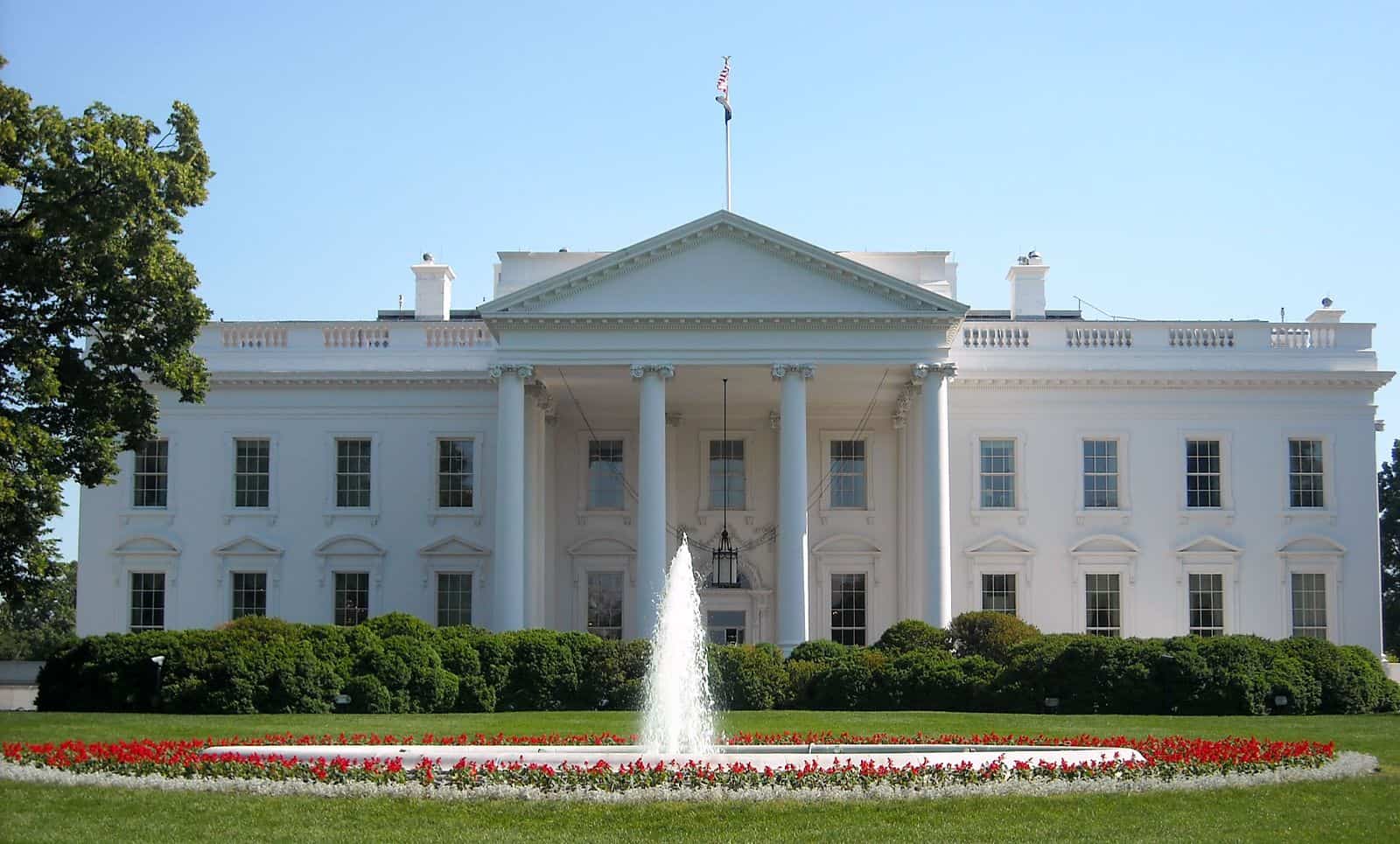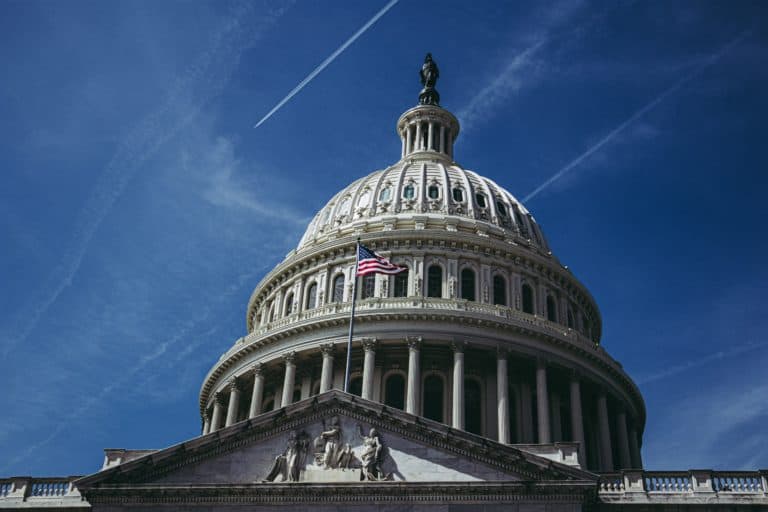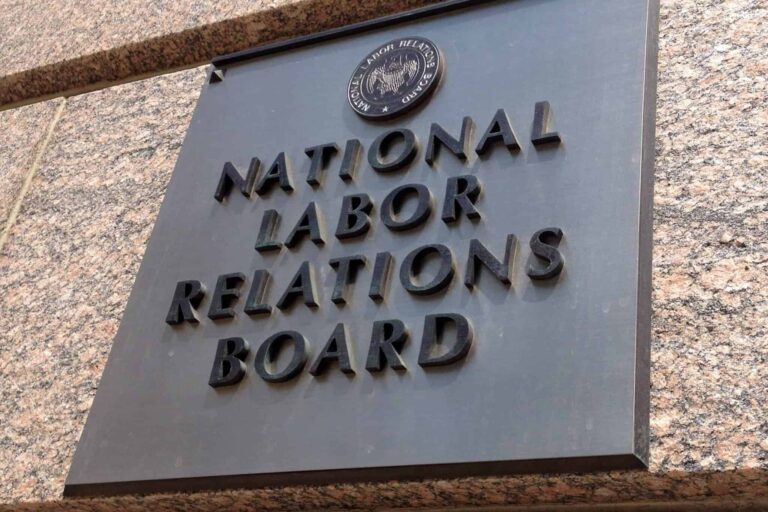
Kevin Vazquez is a staff attorney at the International Brotherhood of Teamsters. He graduated from Harvard Law School in 2023. The opinions he expresses on this blog are his own and should not be attributed to the IBT.

Jason Vazquez is a staff attorney at the International Brotherhood of Teamsters. He graduated from Harvard Law School in 2023. His writing on this blog reflects his personal views and should not be attributed to the Teamsters.
As the 2024 presidential election begins to cast its shadow over the American political landscape, leading Republican figures have renewed their efforts to present themselves as tribunes of the working class. These so-called “populist” Republicans tend to offer much in the way of extolling supposed working-class culture and ventilating perceived working-class grievances but few, if any, specific policy prescriptions to materially advance working-class interests. Last month, however, the Heritage Foundation sought to fill that void by releasing a comprehensive manifesto, dubbed Project 2025, designed to serve as a policy blueprint for the next Republican administration. The report, spanning nearly a thousand pages, is sweeping, the product of collaboration among hundreds of rightwing scholars and dozens of conservative thinktanks. The project contains a chapter outlining numerous proposals for labor-related legislative action from Congress and regulatory action from the DOL, EEOC, and NLRB, all formulated with an apparent view to “restor[ing] the family-supporting job as the centerpiece of the American economy.” While that underlying aspiration may be laudable enough, the proposals would in reality do little more than compound working people’s economic plight and undermine the very family-centric social vision they seek to foster.
The first series of substantive labor proposals offered in the chapter are calculated to make “family-sustaining work accessible” by protecting “flexible work options,” promoting “worker independence,” and supporting “small businesses and entrepreneurship.” These concepts evidently translate, in rightwing Newspeak, to facilitating contingent work arrangements, dismantling overtime protections, and deregulating small firms. The report recommends, for example, that Congress amend the FLSA to permit workers to accumulate compensatory time off in lieu of overtime pay and employers to calculate the overtime period across several weeks, and it relatedly directs the DOL to raise its threshold disqualifying salaried workers from the FLSA’s overtime provisions. The ultimate result of such proposals is apparent enough: workers would toil more hours and receive less pay. In addition, the report urges the DOL and NLRB to restore their Trump-era regulatory rules expanding the definition of independent contractor and narrowing that of joint employer. It also advocates limiting the ability of labor agencies to pursue “regulation through enforcement” strategies, exempting small businesses from agency regulations, and increasing the revenue threshold at which firms become subject to the NLRB’s jurisdiction.
Moving into the critical domain of “worker voice and collective bargaining,” the manifesto identifies, aptly enough, that “American workers lack a meaningful voice in today’s workplace.” Ignoring recent findings that unions presently enjoy overwhelming popularity, however, the report insists that the extant labor law regime diminishes worker representation by failing to offer an “alternative” to “traditional unions” whose “politicking and adversarial approach appeals to few.” The manifesto accordingly recommends that Congress pass the TEAM Act, which would eliminate Section 8(a)(2)’s proscription of employer-dominated unions and abolish labor law’s exclusive representation principle, in order to cultivate the creation of voluntary employer-employee workplace organizations that are disabled from engaging in collective bargaining. It is no secret that such a “nonadversarial” approach would gravely weaken organized labor, undermine independent unions, and drain the collective power of the working class. Indeed, Section 8(a)(2) was framed in light of this precise historical reality.
The chapter’s other proposals concerning the NLRA bear even less fruit. The report directs Congress to mandate secret-ballot elections as the exclusive basis for a union to obtain recognition, which would make it impossible for unions to circumvent employers’ immense capacity to crush incipient organizing efforts during the period preceding an election. It proposes an amendment to the NLRA enabling unions and employers to negotiate around national employment laws, which would effectively compel unions to squander bargaining leverage securing such fundamental employment protections as minimum wage, overtime, occupational safety standards, and perhaps even protections against discrimination. And it recommends that the NLRB restrict the scope of “concerted activity” protected by Section 7 without even attempting to identify any corresponding benefit such a move would furnish to the working class. The report also demands imposing draconian budget cuts and hiring freezes across the federal labor agencies, along with the immediate dismissal of Jennifer Abruzzo, the NLRB’s General Counsel, despite the chronic shortage of funds and personnel that presently plagues the Board’s capacity to redress ULPs and process RM petitions.
Taken as a whole, Project 2025’s labor and employment proposals fail to address wealth inequality, financial precarity, workplace fissuring, or the several other economic crises crushing U.S. workers. The manifesto’s recommendations would do very little to “promote family-sustaining jobs” and would quite likely produce precisely the opposite effect. It’s far from clear, for example, how exchanging overtime pay premiums for time off would generate such jobs given that millions of American workers do not presently earn an adequate income to sustain their families. Indeed, one-third of American families reportedly struggle to afford basic necessities, and sixty percent of American households find it necessary to submit both parents to the workforce. It’s similarly unclear how augmenting “worker flexibility” by expanding temporary and contingent work arrangements would accomplish anything other than expose countless additional families to the acute financial precarity that characterizes the contemporary gig economy. As decades of empirical data have affirmed, organized labor and collective bargaining remain by far the most effective mechanism for empowering workers, redistributing wealth, and improving economic conditions. Yet Project 2025’s labor program would reduce the role of organized labor in the economy by decreasing the number of workers subject to the NLRA and enabling the proliferation of employer-controlled workplace organizations. Moreover, the proposals would undermine collective bargaining by denying many workers the ability to negotiate with the company exerting actual control over their working conditions and forcing unions to bargain for the basic workplace protections afforded by existing employment laws.
Nonetheless, perhaps the most striking aspect of Project 2025’s labor program is the utter lack of imagination it displays. The manifesto is animated by ambitious aspirations to “rescue our kids, reclaim our culture, revive our economy, and defeat the Anti-American Left.” Invoking nigh-apocalyptic language, the authors declare that the present moment is the “last opportunity” to “save our republic” and rescue our “freedom and liberty.” Yet despite such overheated rhetoric, the self-proclaimed “best efforts of the conservative movement” prove incapable of offering more than trifling tweaks to prevailing economic arrangements, such as, for example, eradicating CRT trainings in government agencies, restoring old regulatory rules governing independent contractor status, and granting employers tax credits to implement apprenticeship programs. Many progressive politicians and scholars, in contrast, share the conviction that the American political economy is disintegrating in disturbing ways, which has prompted them to propound bold and transformative policy proposals rather than trivial adjustments at the margins. In recent years, for example, congressional Democrats have introduced a menu of sweeping reforms to the NLRA, as embodied in the PRO Act, and left-wing legal scholars have pitched even more fundamental changes in the nation’s socioeconomic order, including sectoral bargaining, a federal jobs guarantee, and broader mechanisms to facilitate democratic economic planning. Project 2025’s failure to even envisage profound economic change suggests that, despite their impassioned rhetoric and “pro-worker” makeover, conservative leaders may not find themselves altogether unhappy with the current workings of the U.S. economic order and the distributive outcomes it yields. At bottom, then, Project 2025 merely underscores that even purportedly pro-worker conservatives remain ideologically incapable of redressing capitalism’s failures.










Daily News & Commentary
Start your day with our roundup of the latest labor developments. See all
February 16
BLS releases jobs data; ILO hosts conference on child labor.
February 15
The Office of Personnel Management directs federal agencies to terminate their collective bargaining agreements, and Indian farmworkers engage in a one-day strike to protest a trade deal with the United States.
February 13
Sex workers in Nevada fight to become the nation’s first to unionize; industry groups push NLRB to establish a more business-friendly test for independent contractor status; and UFCW launches an anti-AI price setting in grocery store campaign.
February 12
Teamsters sue UPS over buyout program; flight attendants and pilots call for leadership change at American Airlines; and Argentina considers major labor reforms despite forceful opposition.
February 11
Hollywood begins negotiations for a new labor agreement with writers and actors; the EEOC launches an investigation into Nike’s DEI programs and potential discrimination against white workers; and Mayor Mamdani circulates a memo regarding the city’s Economic Development Corporation.
February 10
San Francisco teachers walk out; NLRB reverses course on SpaceX; NYC nurses secure tentative agreements.